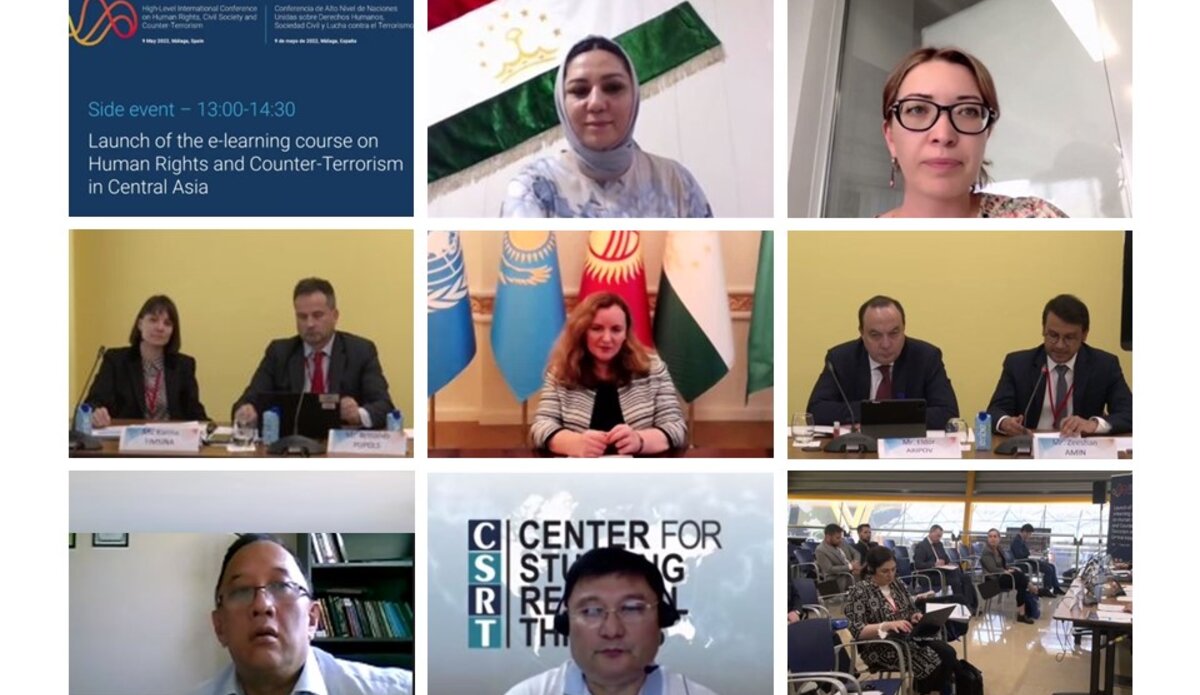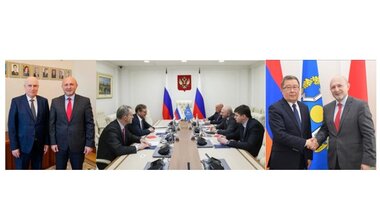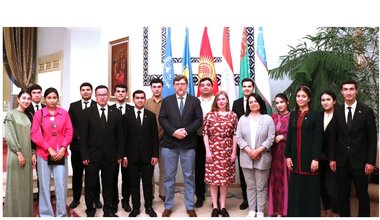UNRCCA LAUNCHES E-LEARNING COURSE ON HUMAN RIGHTS AND COUNTER-TERRORISM IN CENTRAL ASIA
On 9 May, ahead of the High-Level International Conference on Human Rights, Civil Society and Counter-Terrorism, which takes place in Malaga, Spain, UNRCCA and the UN Office of Counter-Terrorism (UNOCT) launched an e-learning course on the protection and promotion of human rights and the rule of law in the context of counter-terrorism in Central Asia. For this purpose, a side event with the participation of representatives from Central Asia and other member states as well as UN entities was organized in a hybrid format.
In her opening statement, SRSG Natalia Gherman informed that the e-learning course is an integral part of the multi-year UNRCCA and UNOCT project called “Towards a comprehensive implementation of the UN Global Counter-Terrorism Strategy in Central Asia”. The course was developed on the basis of the Joint Plan of Action and its newly updated version endorsed by five Central Asian states in March 2022. The SRSG underlined that by adopting the Joint Plan of Action, the Central Asian states recognized the need to ensure the full respect for human rights and acknowledged that effective counter-terrorism measures and the protection of human rights and the rule of law are complementary and mutually reinforcing goals.
The e-learning course is customized to the region of Central Asia and incorporates international standards and best practices. It contains eleven modules covering the international legal framework of counter-terrorism, compliance with the international human rights standards related to investigations, prosecutions, extraditions, transfers, treatment of prisoners as well as protection of the rights of children returning from conflict zones.
The training course was developed in partnership with the UN Institute for Training and Research (UNITAR), the UN Office for Project Services (UNOPS), the UN Office of the High Commissioner for Human Rights (OHCHR) and the UN International Children's Emergency Fund (UNICEF).
 UN
UN





